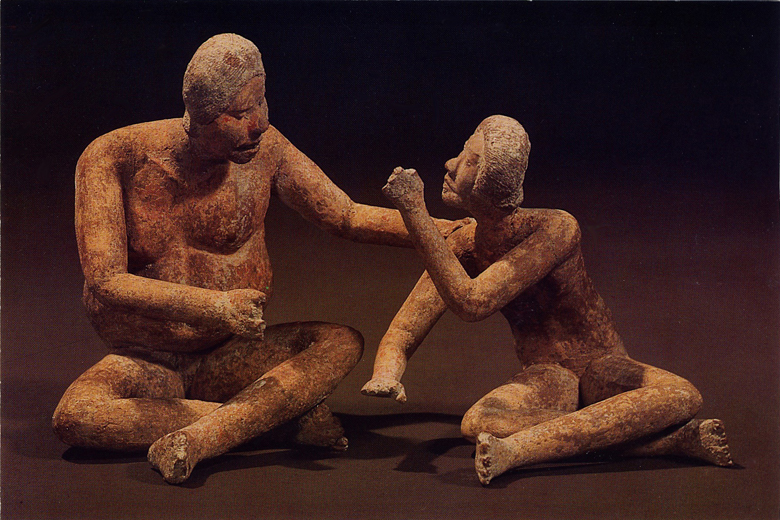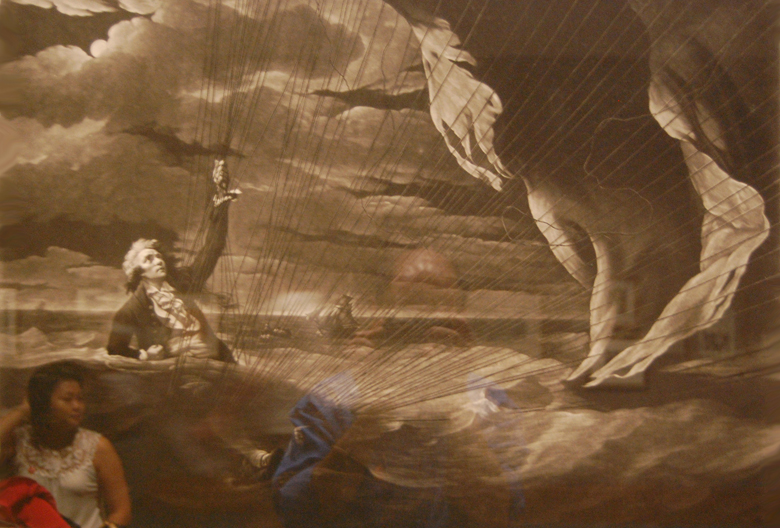
LIII
Fragment from a correspondence with P.:
What I’m trying to suggest is that I believe there is, in writing, and living, a way of acknowledging the crimes of history and present political realities without reducing any of the participants to the status of object. To see that people have been victimized, but not reduce them (or one’s self) to the noun Victim because that first of all denies that there is more to them than that, and also because it functions projectively and separates things into two distinct (and therefore mutually exclusive) camps.
I am groping toward a way of understanding the world and social relations as being constantly in transformation. I want to honor identity, individuality and the distinctions among all things, but pull back before this becomes a trap – a single-point perspective.
I am, taxonomically, a man. But if I am too much a Man, I lose that I am Mammal, and I’ll never experience and integrate the parts of me that are Bird or Fish, or Tree or Sedge.
I want to live in an area that understands specific forms but does not become stuck either in my own or someone else’s determination of them and what they signify.
But this is very difficult to express, much less imagine in any Western language, hence any Western mode of thought. And now, at least for the time being, that mode of thought is affecting everyone else as well – the whole seven billion.
To me, imperialism is the tip of the great dualist iceberg that, over the course of centuries, forced the entire world into seeing itself in terms of European categories. To me, that’s the true significance – and universal menace – of Globalization.
So this is, and is not about writing and literature. I’m trying to find a way to use English, not so much against itself, but as a way of saying: OK, here are the obstacles to thinking differently about the world that are inherent in our tongue. No how do we bypass them? Is there any way at all? And if so, will a change in expressive modality change the quality of our thinking? Could English, that great global mashup and policeman’s baton become, paradoxically, a means of freeing ourselves from the chains of a deadly (and all the more deadly for being dead) ontology? No se, pero quiero ver.
Is art a mirror? Even if it is, is not a mirror a manifestation of the world, not something apart from it?
One of our vampires is missing.
Imperfectas tabulas, unfinished pictures. Again, the association of the “unfinished” with the “imperfect.”
One of our vultures is missing.
Houston, we have a problem…

And if the Caliphate triumphs over Shia, and the two infidel unigods, will this become Book of the World Koran’d?
And still, the East River poses its perennial dilemma: Roebling v. Wade.
But wait, there’s the ferry!
What is it, then, between us?
What is the count of the scores or hundreds of years between us?
Whatever it is, it avails not – distance avails not and place avails not.
Whitman, from “Crossing Brooklyn Ferry.”
The dust, even nanoparticles – for all intensive [sic?] purposes invisible – can still expand with tremendous force when rapidly oxygenated…
English isn’t very.
It’s the ontology, stupid.
No, I mean the stupid ontology.
Well, both, actually.
Souls of men and women! it is not you I call unseen, unheard,
untouchable and untouching,
It is not you I go argue pro and con about, and to settle whether you are alive or no,
I own publicly who you are, if nobody else owns.
Grown, half-grown and babe, of this country and every country,
in-doors and out-doors, one just as much as the other, I see,
And all else behind or through them.
The wife, and she is not one jot less than the husband,
The daughter, and she is just as good as the son,
The mother, and she is every bit as much as the father.
Offspring of ignorant and poor, boys apprenticed to trades,
Young fellows working on farms and old fellows working on farms,
Sailor-men, merchant-men, coasters, immigrants,
All these I see, but nigher and farther the same I see,
None shall escape me and none shall wish to escape me.
I bring what you much need yet always have,
Not money, amours, dress, eating, erudition, but as good,
I send no agent or medium, offer no representative of value, but offer the value itself.
There is something that comes to one now and perpetually,
It is not what is printed, preach’d, discussed, it eludes discussion and print,
It is not to be put in a book, it is not in this book,
It is for you whoever you are, it is no farther from you than your hearing and sight are from you,
It is hinted by nearest, commonest, readiest, it is ever provoked by them.
You may read in many languages, yet read nothing about it,
You may read the President’s message and read nothing about it there,
Nothing in the reports from the State department or Treasury department, or in the daily papers or weekly papers,
Or in the census or revenue returns, prices current, or any accounts of stock.
…When the psalm sings instead of the singer,
When the script preaches instead of the preacher,
When the pulpit descends and goes instead of the carver that carved the supporting desk,
When I can touch the body of books by night or by day, and when they touch my body back again,
When a university course convinces like a slumbering woman and child convince,
When the minted gold in the vault smiles like the night-watchman’s daughter,
When warrantee deeds loafe in chairs opposite and are my friendly companions,
I intend to reach them my hand, and make as much of them as I do of men and women like you.
WW, from “A Song For Occupations”
When the “restorers” of Cleopatra’s Needle surrounded the obelisk with a scaffold, did one of the hieroglyphs of Horus escape? And is it now perched atop the right-most upright.
Of course not. From Pale Male’s point of view, this is just a better coign of vantage.
And besides, everybody knows that hieroglyphs can’t fly.
